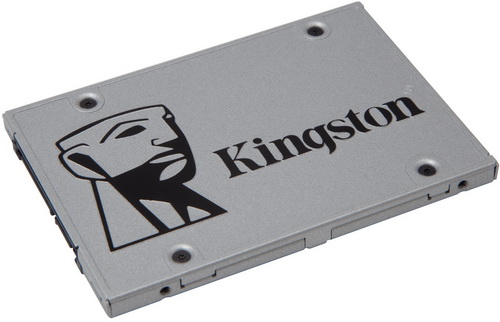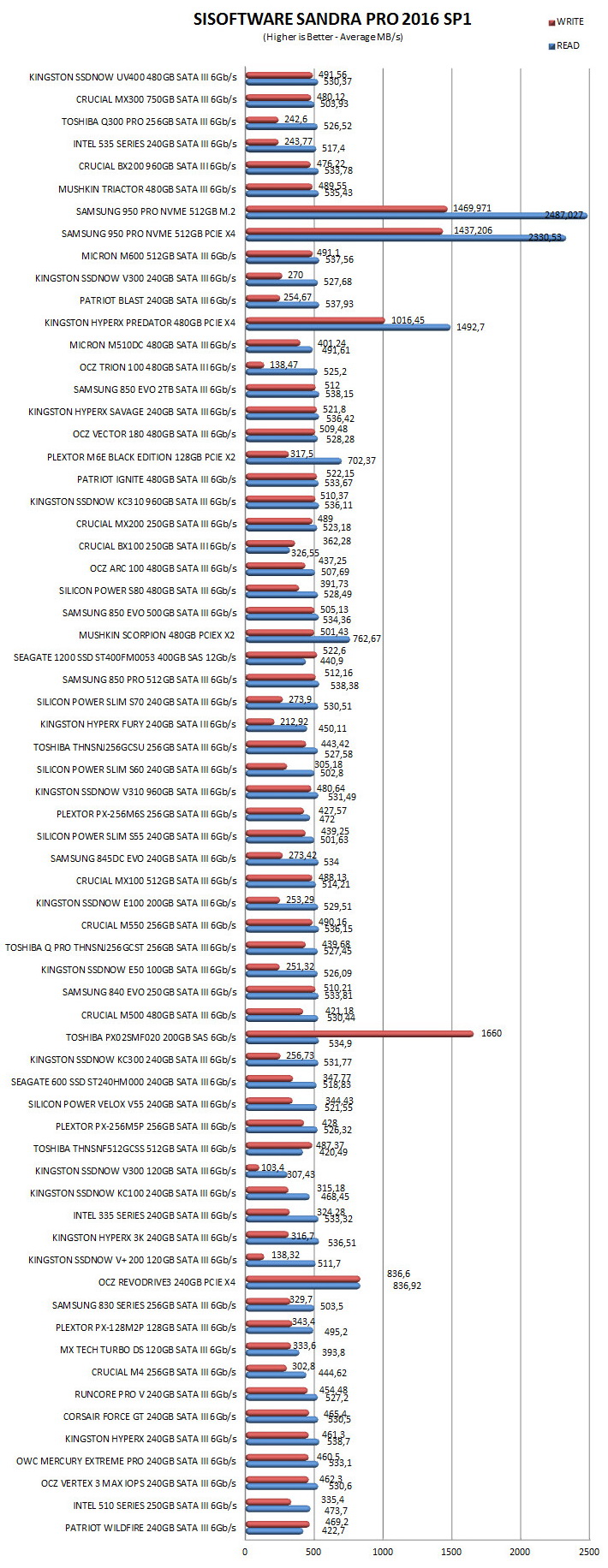INTRODUCTION

It's been somewhat long since SATA and mSATA SSDs were last considered as hardware components aimed only for the niche/enthusiast market so if you're out looking for an entry-level model things may not get much better than they are today (although they probably will). Now as many of you know the very first SSDs used MLC NAND flash (multi-layer cell) with just a few exceptions (far more expensive ones) that used much faster SLC NAND flash (single-layer cell). Both types are used today as well (although it's been a while since I’ve seen an SLC based model) in addition to the rather new TLC NAND (triple-level cell) which although not as fast as the previously mentioned it comes at a much lower cost. We've seen quite a few TLC NAND flash based SSDs in the past year by most manufacturers but unfortunately Kingston’s first TLC model was the SSDNow UV300 which never made it in the EU and USA (India and Russia if i recall correctly). The brand new Kingston SSDNow UV400 model is a more advanced model compared to the UV300 line and with us today we have the 480GB variant.
Kingston Technology Company, Inc. is the world’s largest independent manufacturer of memory products. Kingston designs, manufactures and distributes memory products for desktops, laptops, servers, printers, and Flash memory products for PDAs, mobile phones, digital cameras, and MP3 players. Through its global network of subsidiaries and affiliates, Kingston has manufacturing facilities in California, Taiwan, China and sales representatives in the United States, Canada, Europe, Russia, Turkey, Ukraine, Australia, New Zealand, India, Taiwan, China, and Latin America.
Just like the Trion 150 line of SSDs by OCZ Kingston chose to use Toshiba 15nm 2D planar Triple-Level Cell (TLC) NAND flash memory for the brand new UV400 line (at least for now) but they paired it with the quad channel Marvell 88SS1074 NAND flash controller and a 512MB LPDDR3 1600 DRAM module by Nanya (roughly 8GB of the TLC flash is treated as SLC cache). We last saw this exact same controller in the new MX300 line by Crucial and its features include power loss protection, active garbage collection, redundant array of independent NAND (RAIN), LDPC error correction code (ECC), adaptive thermal protection, data-path protection, multistep data integrity algorithm, TRIM, SMART, AES 256-bit hardware encryption, TCG Opal 2.0 and IEEE-1667 (fully compatible with Microsoft's eDrive). Kingston reports an endurance level of 200TBW (Total Bytes Written) for the 480GB model with an MTBF of 1 million hours and covers it with a 3 year limited warranty with free technical support.
SPECIFICATIONS AND FEATURES

THE UV400 480GB
 Once again Kingston sent us the standalone package and not the upgrade bundle version.
Once again Kingston sent us the standalone package and not the upgrade bundle version.
Warranty information is printed at the rear of the box in many languages.
Unfortunately although other standalone versions feature a 7mm to 9.5mm bracket the UV400 comes alone (first all-silver model by Kingston).
A small sticker placed at the rear of the drive contains information such as the serial number, barcode, capacity, electrical specifications, firmware version and several certification and warning logos.
The typical SATA data and power connectors are placed at the rear of the drive.
Opening the enclosure is not hard if you have a Torx T5H screwdriver.


At the bottom part of the PCB we see 8 Toshiba NAND flash modules each 32GB in capacity (the Kingston name is printed on them).


On the other side of the PCB we also see 8 Toshiba NAND flash modules but this time right next to the 512MB LPDDR3 DRAM module by Nanya and the quad channel 88SS1074 NAND flash controller by Marvell.
TEST BED


TESTING METHODOLOGY
After roughly 9 years of testing sold state drives i have concluded that it's almost impossible for any single benchmark suite to accurately measure their performance and that's why in certain benchmark suites we see amazing read/write performance numbers with some drives while in others things are quite different. The reason behind this is that some benchmarking suites are configured to read and write random chunks of data while others read and write constant (sequential) ones. So that's why i always use a very wide selection of benchmarking suites including AIDA64, HD Tach RW, HD Tune Pro, Crystal Disk Mark, Sisoftware Sandra Pro, AS SSD, IOmeter and ATTO. To get the most accurate results each test gets repeated a total of 6 times with the average performance numbers recorded into our charts. Also as of February 25th 2015 our results will also include the Storage Networking Industry Association’s (SNIA) IOMeter tests. These tests include a 12 Hour write test used to “simulate” performance degradation over time and a mixed workload test which basically shows what you can expect when using an SSD continuously for roughly two hours. Unfortunately due to the time required for these tests we repeat them a total of 3 times and not 6 as the above.
Many people have made inquiries about our charts in the past so once again please do keep in mind that the Charts have the average performance numbers of each drive recorded and not the peak (highest) ones. Also although every single one of these programs can help potential buyers choose the right drive for their needs you should also remember that from any kind of benchmark up to real world usage the gap is not small (and usually most differences will go unnoticed by most people). All tests were performed in a fresh Windows 7 Ultimate x64 installation with every update installed up to September 22nd 2016.
TEST RESULTS - AIDA64 / ATTO


TEST RESULTS - HD TACH RW / HD TUNE PRO


TEST RESULTS - SISOFTWARE SANDRA PRO / CRYSTAL DISK MARK X64


TEST RESULTS – AS SSD / IOMETER


TEST RESULTS – IOMETER SNIA
CONCLUSION

Our charts clearly show that the SSDnow UV400 480GB may not be the fastest SSD in the market today but it holds its own against many of the latest models. Certainly after using up all 8GB of the pseudo SLC cache write performance drops quite a bit (average write in HD Tune Pro dropped down to 105.3MB/s) but on one hand that’s the case with quite a few SSDs in the market today while on the other not many people write over 8GB at a time on an SSD. The main problem lies with the rather low IOPS results we recorded all across the board (especially in our SNIA tests) but unless you want an SSD for professional use this shouldn’t really worry you. Of course I don’t know why Kingston decided to disable the power save mode of the drive (DevSleep) but I’m sure they had their reasons (besides it’s not like SSDs use much power as is).
So what about price? How much is Kingston currently asking for the SSDnow UV400 480GB SSD? Well right now the standalone version of the UV400 480GB model (the above picture showcases the slightly more expensive upgrade bundle) retails for just USD110.99 inside the USA (Amazon.com) and for just 115Euros inside the EU (Amazon.co.uk) a price tag which puts right next to the Ultra II model by SanDisk and slightly beneath the OCZ Trion 150 480GB and Crucial MX300 525GB models. With that in mind we don’t think Kingston asks for much for the SSDnow UV400 480GB and although it’s really not suited for serious professional use (as far as performance goes) it’s a very good option for regular consumers and that’s why it gets our Golden Award.

PROS
- Build Quality (Toshiba 15nm NAND Flash/Marvell Controller)
- Very Good Overall Performance
- 3 Years Warranty / 1 Million Hours MTBF
- Design (New For A Kingston Drive)
- Price (For Some)
CONS
- IOmeter SNIA Performance

 O-Sense
O-Sense















.png)

